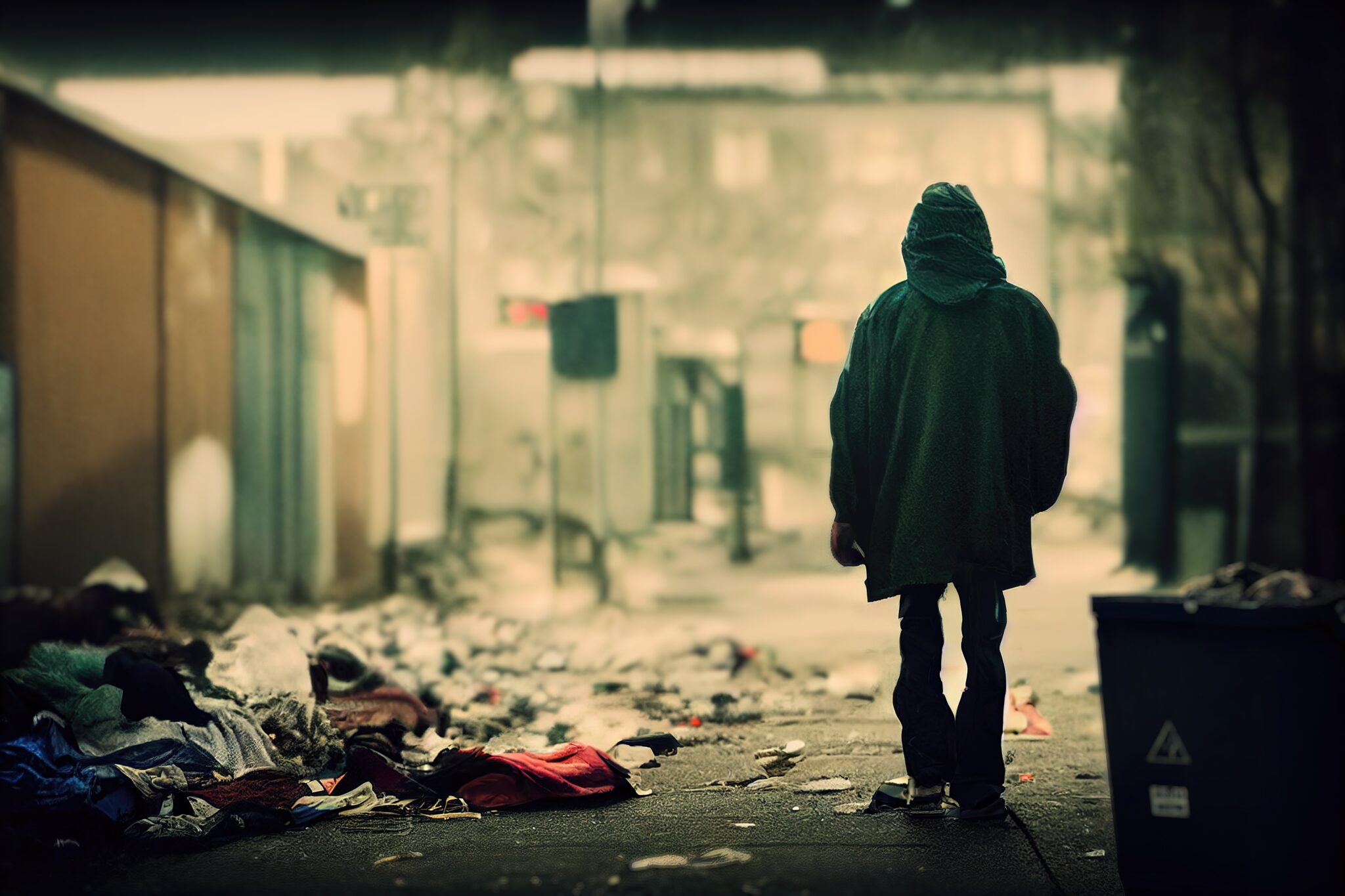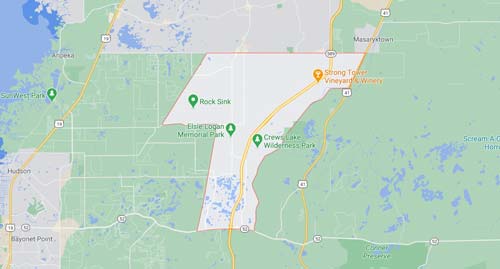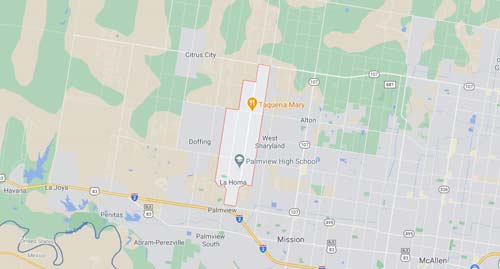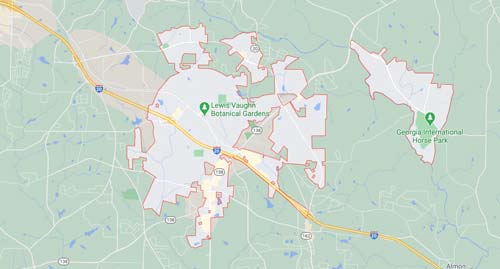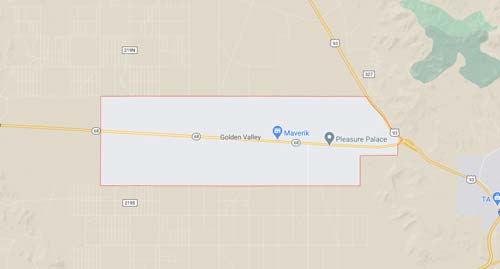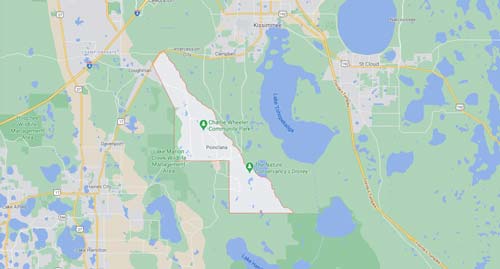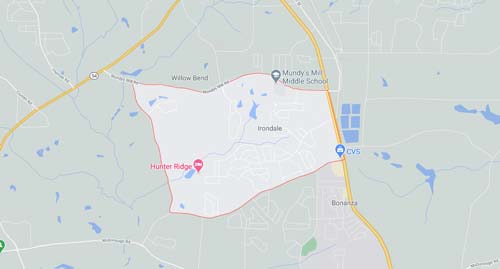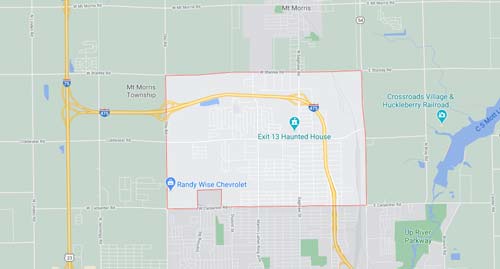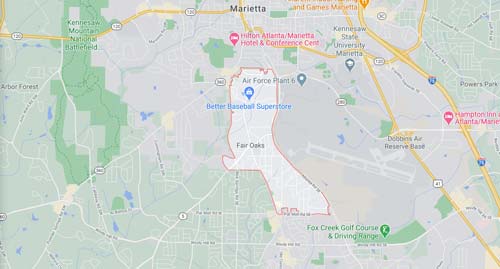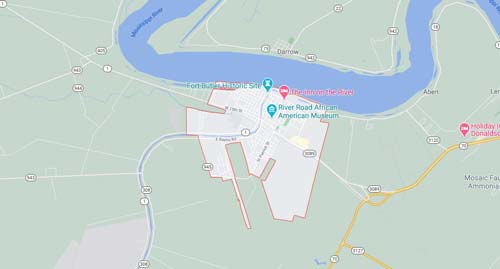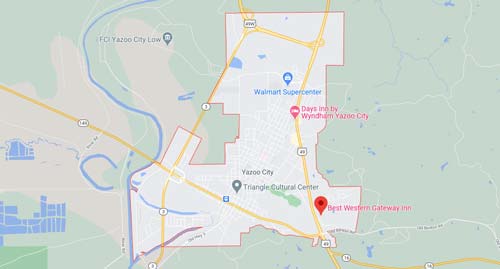#10 Shady Hills, Florida
Quick Facts:
- A population of 12, 435
- A median home value of $120,000
- An unemployment rate of 9.3 percent
- A poverty rate of 22.8 percent
A little over 40 miles north of downtown Tampa, Shady Hills, Florida, is a small town with limited access to medical care and nutritious food.
The closest hospital is 9.1 miles away. Therefore, urgent medical attention can be scarce. Additionally, 60 percent of the resident population lives far away from a grocery store.
Shady Hills has also been deeply affected by the nation’s opioid epidemic.
Between 2015 and 2017, there was an average of 29.7 drug poisoning deaths per 100,000 people. This is in comparison to the national average of 20 deaths per 100,000 people.
#9 La Homa, Texas
Quick Facts:
- A population of 12,054
- A median home value of $66,400
- An unemployment rate of 18.1 percent
- A poverty rate of 38.5 percent
Near the southern edge of Texas, La Homa ranks one of the United States’ poorest towns.
With a 38.5 percent poverty rate, the number of people without work more than doubles the national average, which currently resides at 14.1 percent.
La Homa has seen a population decrease of 14.5 percent in the last year.
While 18.1 percent of the workers continue without a job, people are leaving due to the lack of labor.
Thus, the property values drop to a low $66,400.
#8 Conyers, Georgia
Quick Facts:
- A population of 15,882
- A median home value of $122,200
- An unemployment rate of 10.8 percent
- A poverty rate of 30.5 percent
Conyers struggles as one of the poorest towns in the nation.
More than 30 percent of residents live below the poverty line, and only 28.8 percent are homeowners.
Most Conyers households earn less than $40,000 annually, which corresponds to the lack of job availability in the area.
#7 Golden Valley, Arizona
Quick Facts:
- A population of 8,673
- A median home value of $79,100
- An unemployment rate of 14.1 percent
- A poverty rate of 24.1 percent
Golden Valley ranks as the worst place to live in all of Arizona and the seventh-worst in the United States.
According to the U.S. Census Bureau, the town maintains a 14.1 percent unemployment rate over the last five years.
Since there are so few jobs, Golden Valley presents a high poverty rate of 24.1 percent.
Another major issue that Golden Valley faces is food scarcity.
Over three-fourths of the residents live in low access zones, which means that those who live in urban areas reside at least one mile away from a grocery and those in rural areas live at least ten miles away.
#6 Poinciana, Florida
Quick Facts:
- A population of 67,169
- A median home value of $164,500
- An unemployment rate of 6.9 percent
- A poverty rate of 17.4 percent
Poinciana, located in Central Florida, ranks on this list not so much for its unemployment and poverty level but rather for its lack of community amenities.
There are few restaurants, gyms, museums, and other similar engaging spaces within the area and the surrounding county.
Additionally, the average commute for a Poinciana resident is 44 minutes, which is 17 minutes longer than the national average.
#5 Irondale, Georgia
Quick Facts:
- A population of 8,578
- A median home value of $93,300
- An unemployment rate of 8.1 percent
- A poverty rate of 26.8 percent
In 2018, Irondale experienced 498.1 violent crimes for every 100,000 people–compared to 380.6 for every person in the country.
With a high crime rate, the property value within Irondale has declined.
It only reaches an average of $93,300, which is less than half the national average.
#4 Beecher, Michigan
Quick Facts:
- A population of 9,128
- A median home value of $28,600
- An unemployment rate of 23.1 percent
- A poverty rate of 38.4 percent
Located within Michigan’s Rust Belt, Beecher resides just ten miles north of Flint.
The residents of this town have suffered an average unemployment rate that more than quadruples the national average.
This is due to the sharp industrial decline over the last few decades.
As a result, the average Beecher household makes less than $27,000 annually.
#3 Fair Oaks, Georgia
Quick Facts:
- A population of 9,173
- A median home value of $100,900
- An unemployment rate of 8.1 percent
- A poverty rate of 32.6 percent
With a poverty rate that averages more than doubles that of the national average, Fair Oaks has a controversially high property value.
Averaging at a median home value of $100,900, many residents cannot afford the high cost of living.
Additionally, food insecurity is quite common.
In the last year, the Georgia town has seen a decline in residents by 1.1 percent.
#2 Donaldsonville, Louisiana
Quick Facts:
- A population of 8,090
- A median home value of $110,800
- An unemployment rate of 14.3 percent
- A poverty rate of 39.4 percent
As Louisiana’s worst city to live in, Donaldsonville has a poverty level that more than doubles the national average.
Additionally, the majority of households make less than $22,000, and alongside high housing prices like the $110,800 average, there is a percentage of residents who struggle to get by.
The lack of employment does not make the living situation any better, as total employment declined 4.9 percent in the last five years.
#1 Yazoo City, Mississippi
Quick Facts:
- A population of 11,076
- A median home value of $68,300
- An unemployment rate of 20.7 percent
- A poverty rate of 42.6 percent
As the worst place to live in the United States, Yazoo City has a poverty rate that more than triples the national average.
Due to the city’s lack of jobs, about 20 percent of residents get by with less than a $10,000 annual income.
Additionally, grocery stores and community areas are scarce, causing 3.5 percent of the population to leave over the last five years.
The Technique for Compiling this List
There were three areas considered when making this list—the economy, quality of life, and community.
The economy category looked at median home value as well as employment conditions.
It examines the employment population, the change in employment, and the total number of workers.
The quality of life category examined things like the poverty rate and distance to food and medical care.
Finally, the community category researched societal factors like transportation, average commute, and the crime rate.

